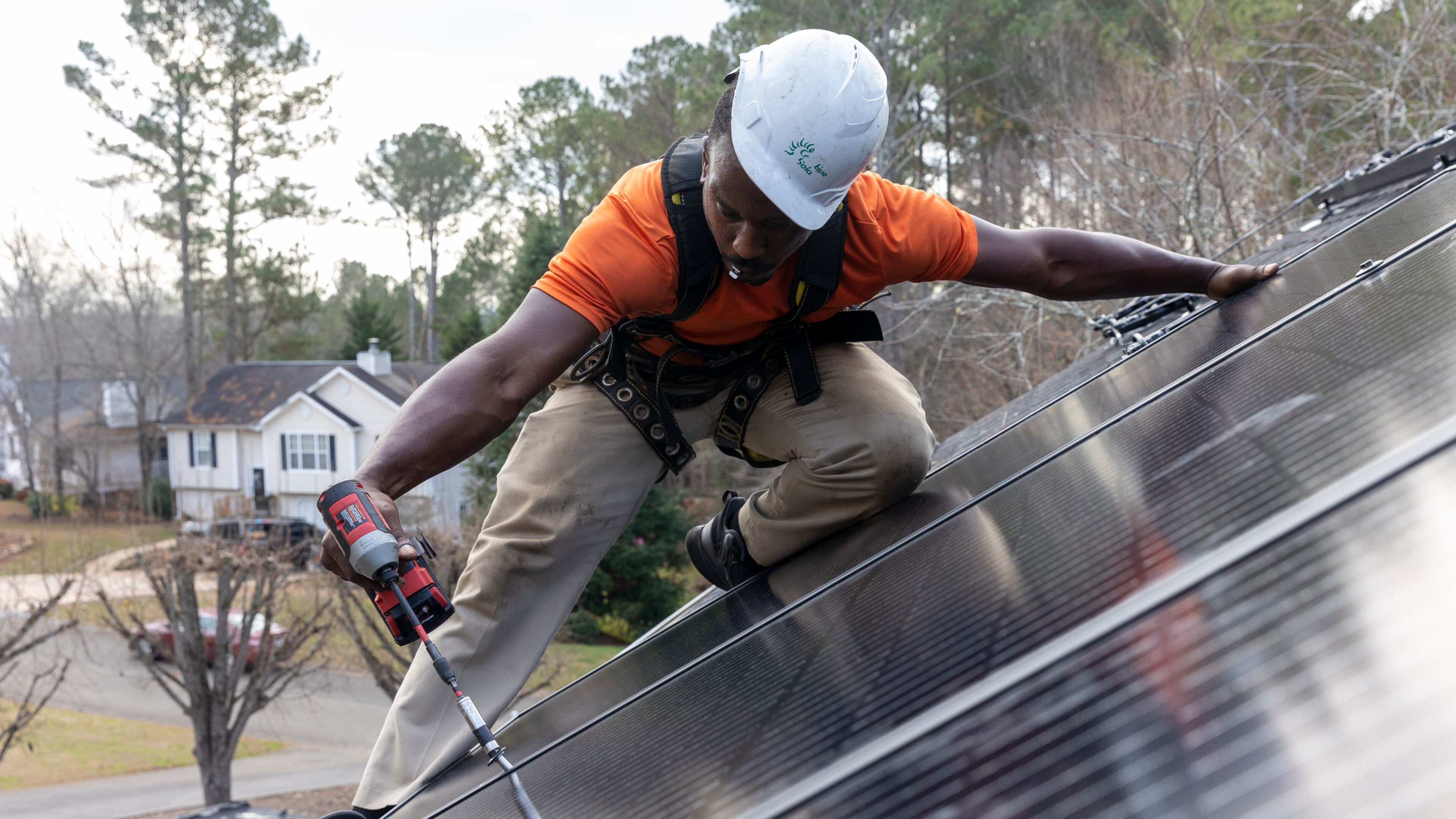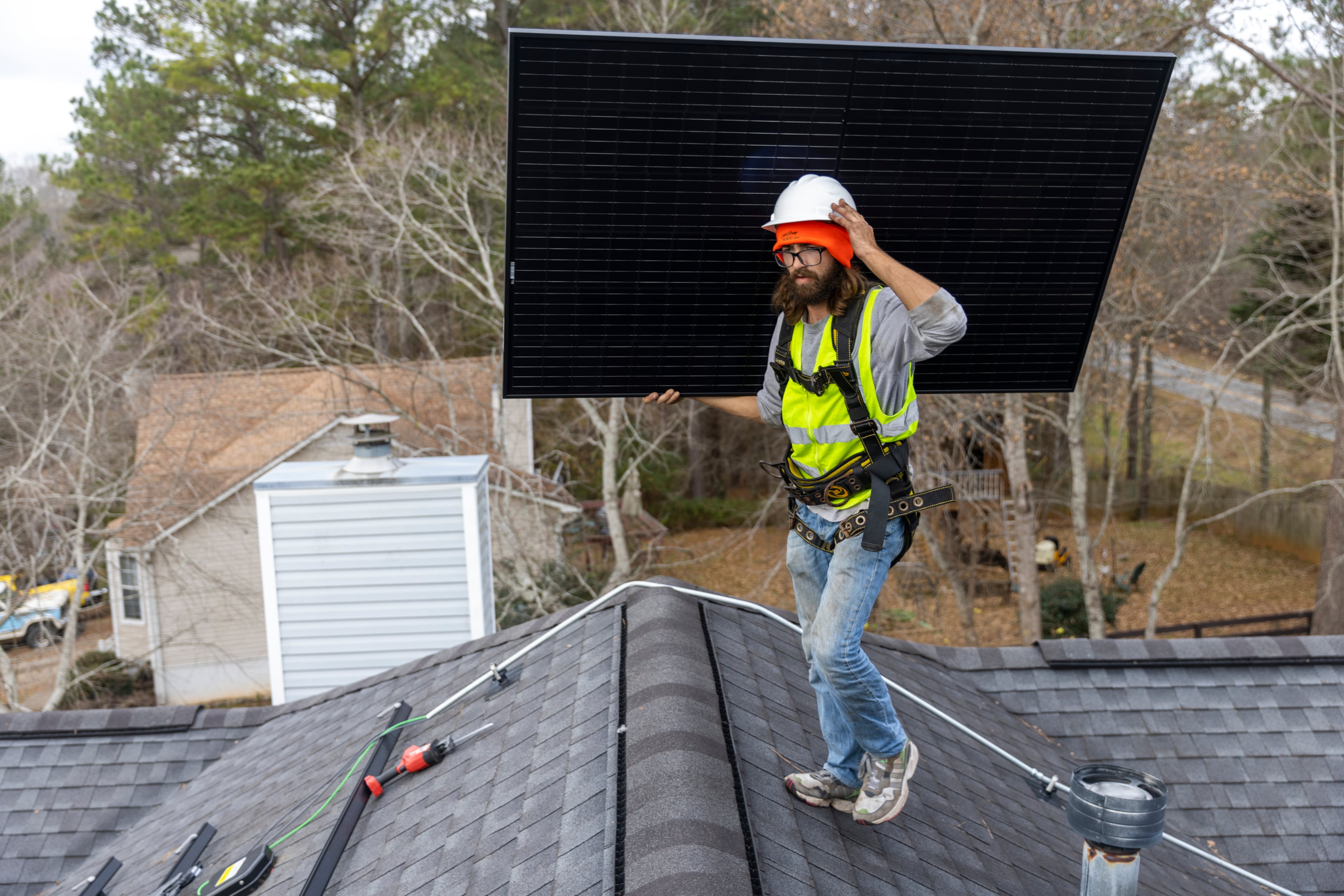With rooftop solar program maxed out, some customers won’t see savings

Jennifer Greene had long toyed with the idea of putting solar panels on the roof of her Kirkwood home.
For Greene, a contractor, there was a lot to like about the technology.
There were the environmental benefits of powering her home with the sun’s rays. There was the allure of reducing her reliance on the electricity grid. And, thanks to tax credits and other incentives, there was the potential of a hefty return on her investment.
“This year, it started making more sense,” Greene said.
Over the summer, she had a local installer — Creative Solar USA — design her 24-panel system.
But soon after, she received bad news: Her monthly power bill wouldn’t be nearly as low as she’d hoped, at least for now.
The reason?
A rooftop solar “net metering” pilot program, created by the Public Service Commission in 2019, filled up this July, and Greene had narrowly missed out on a spot.
Most homes with solar still rely on the power grid for energy when the sun isn’t shining. But, when the sun is out, many consumers don’t use all of the energy their panels generate, so extra power is sent back to the grid. Net metering is a system used to determine how that surplus energy is credited on a customer’s power bill.
For those in the monthly net metering program, the excess energy translates into lower bills throughout the year.
But Georgia’s program was capped at just 5,000 participants, and it’s possible it won’t be opened to new customers until early 2023.
Customers and installers say they’re frustrated that the Public Service Commission hasn’t acted to expand the program.
“I still believe that having solar on our house is the right thing to do. ... But I think that our state and power grid should encourage me to spend this money and pay me for the power they’re going to take that I’m generating at great expense,” she said.

For some, the difference is significant. Greene said her solar installer estimates she’ll miss out on around $500 in annual savings, potentially adding years to the amount of time it will take for the $21,000 investment she made on the system to pay for itself.
Sure, homeowners who can afford a solar installation can still get one — they just likely won’t see their power bills drop as significantly.
In the meantime, installers say the pause in the program is hurting their business.
Russell Seifert, co-founder and CEO of Creative Solar USA, said around 180 residential customers who were interested in solar installations have changed their minds since July, and that part of his business is down, roughly 50%. Most cited the halt to the net metering program as the reason why they were backing out, he said.
While Georgia ranks in the top 10 for total installed solar capacity, the state is 33rd in rooftop solar installed in 2021, according to Bryan White, a senior analyst at the energy consulting group Wood Mackenzie. With the residential solar industry just gaining a foothold, some warn pausing the program could cause long-lasting harm.
“Georgia’s solar industry will absolutely suffer while other states which have net metering enjoy thriving solar industries,” said Montana Busch, president and CEO of Alternative Energy Southeast and co-chair of the nonprofit Georgia Solar Energy Association.
Solar advocates have called on the PSC to act now to expand the program. But so far, the commission has signaled it will wait until the next rate docket in 2022 to consider reopening it.
Even then, new participants wouldn’t be able to capitalize on savings until 2023, PSC commissioner Tim Echols said in response to emailed questions. Echols added that the program could be made “retroactive so that anyone who added solar in 2021 or 2022 would be able to be included.”
Craig Bell, a spokesman for Georgia Power, said that the company is still reviewing the impacts of the program.
“Although we have reached the 5,000 combined application mark, this program is still very new, and the effects have not yet been fully evaluated,” he said.
In the meantime, help for the solar industry could come from other sources.
In March, State Sen. Jeff Mullis (R-Chickamauga) co-sponsored a bill that would require utilities statewide to use monthly net metering to credit solar customers and remove some fees imposed on those with rooftop solar systems. Solar advocates are hopeful they’ll see a vote in next month’s legislative session.
The Build Back Better Act, which passed the U.S. House of Representatives last month, contains $555 billion in climate change investments. That includes tax credits that could slash rooftop solar costs by around 30%, according to the Natural Resources Defense Council. However, the bill faces an uncertain fate in the narrowly divided Senate.


